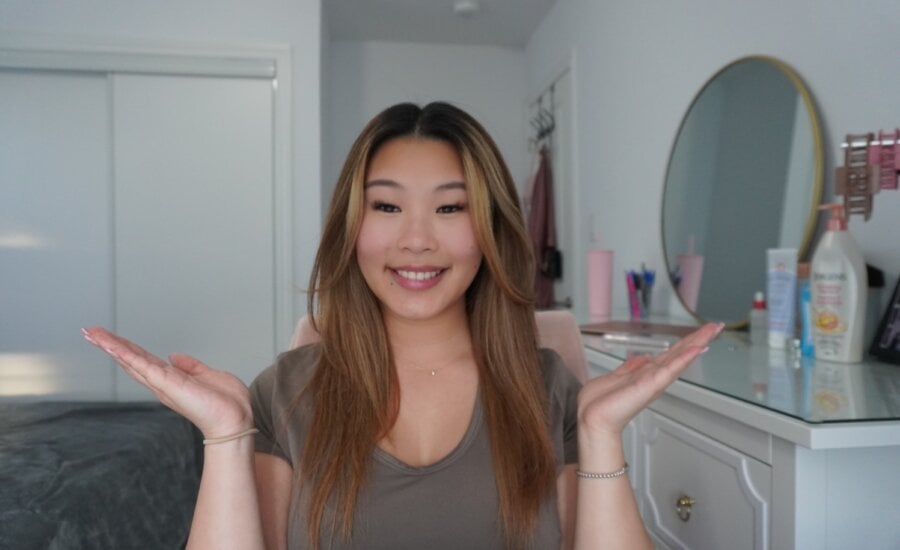Make the smart money moves early: self-taught finfluencer Joyee Yang
The financial influencer shares her thoughts on debt, investing and putting every single dollar to work.
Advertisement
The financial influencer shares her thoughts on debt, investing and putting every single dollar to work.

Financial influencer Joyee Yang learned about money the hard way. Kicked out of her parents’ house at 19, she quickly realized she not only had to make money, but she had to make money work for her. Over the next four years, she worked two or even three jobs at a time and was careful about saving every penny. Yang also started investing. She loved the way her money could grow even as she slept. At 23, she bought a condominium that she now rents out for income. When friends and co-workers wondered how she could accomplish all these goals at such a young age, and pay off her debts in the process, she got the idea of creating easy-to-understand videos about personal finance and investing, targeted at people like her 19-year-old self. Since posting her first video in January 2023, Yang has won over hundreds of thousands of followers on Instagram and TikTok.
My number-one investing hero has to be Brandon Beavis. His YouTube videos taught me everything I know about investing. My money hero is Adrian Bar, Canadian in a T-Shirt on YouTube. He taught me how to optimize taxes and keep more money in my pocket. Third, my finance hero is Maxwell Nicholson, the CEO of Blossom. He built an app that shows you what your favourite influencers and friends are investing in, and transparency is truly what Gen Z needs nowadays.
Free time is such a luxury for me. While working two to three jobs from the ages of 19 to 25, I never had free time. I’ve been self-employed for six months now, and I’ve been travelling a lot recently. I also love going on solo dates, taking myself out for breakfasts, dinners, spa treatments and window shopping.
I would definitely be travelling and doing all the excursions, like swimming with dolphins, scuba diving, ziplining, paragliding and so on.
Buying snacks at the grocery store. I learned that money allows me to purchase items that I want.
The first thing I bought with my first paycheque was a silver ring at Swarovski. I wanted to buy something that would remind me of my independence and something that would never go out of style.
I got my first job at age 16, as a sales associate at Old Navy.
The biggest money lesson I learned was the importance of putting every single dollar of mine to work. I wish I’d researched all the available investment vehicles, like high-interest savings accounts, the stock market and GICs, when I was 19. I missed out on potential gains because I was unaware that such investment vehicles exist. It was important for me to go through that, because now I love exploring more ways to put my money to work, and now I have a platform to share my findings.
Buy assets, not liabilities.
Don’t invest; it’s too risky.
I would rather receive a large sum of money all at once so I can invest it.
Automating your finances. Everyone should take 10 to 20 minutes to automate their finances. It ensures that you hit your financial goals and that you’re always paying yourself first.
You need money to grow money. The truth is: time grows money. Compounding interest will grow your money even more than money can grow money.
Leaving $30,000 in my chequing account for over three years. It goes against everything I know and believe now. When you leave money in a chequing account, it devalues every year due to inflation. Knowing what I know now, the least I could’ve done was put $30,000 in a high-interest savings account, then slowly start investing in the S&P 500.
The meaning of the word “value” has shifted for me. When I was penny-pinching, value would be “What is the biggest bang for my buck?” Now, it’s about convenience and what would save me time.
My first big-girl purchase was a car. That was a quick decision. My biggest purchase that I took my time on was my condo.
There’s good and bad debt. Bad debt can hold you back from your financial goals for years. This includes debts like credit cards, high-interest personal lines of credit and payday loans. The longer you take to pay these off, the more interest you’ll be paying. That’s money down the drain! Stay disciplined and pay off all bad debt, and then you’ll start to see your finances grow. Good debt is typically considered an investment that has the potential to increase in value over time—like a mortgage for a house, student loans and business loans.
My most recent splurge was spending $300 at a spa.
Think and Grow Rich by Napoleon Hill (Penguin Random House, 2012). Mindset is everything.
I don’t have a wallet. Everything is digital for me.
My car.
Own.
Buy.
Invest.
Budget at first, then just follow intuitive spending after.
Sell my condo and try other investments. I’m not sure which ones yet.
Share this article Share on Facebook Share on Twitter Share on Linkedin Share on Reddit Share on Email